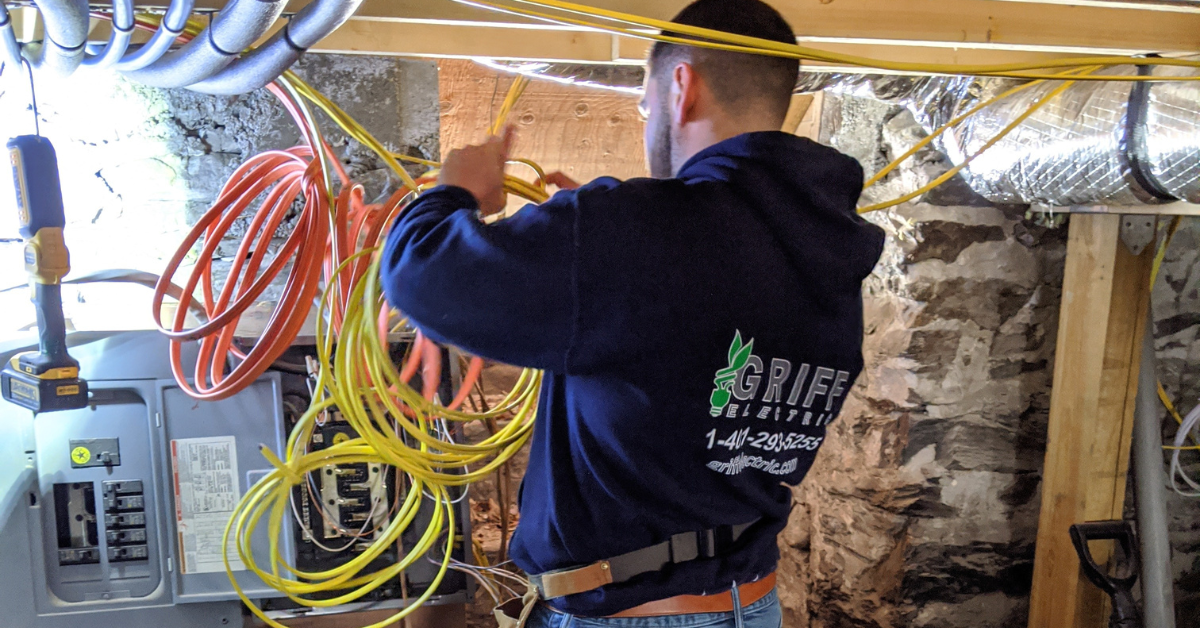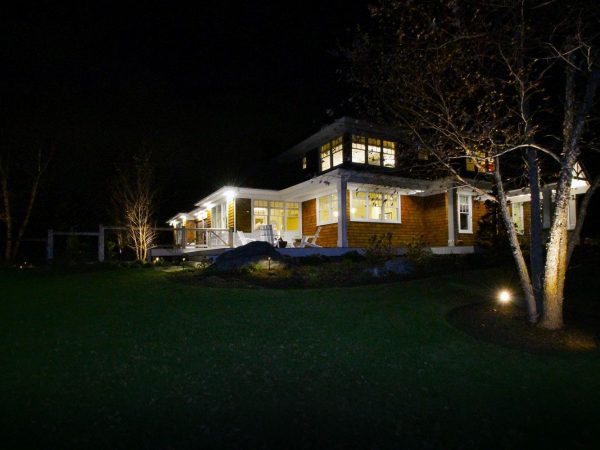
You’ve finally found your dream home, full of that charm and character of older New England houses. That is, until the warning signs of electrical problems and wiring issues turn your dream into a nightmare.
Many homes like those in the Newport, Rhode Island area date back decades or even centuries. Houses are often renovated to modernize both interior and exterior, while still keeping the classic architecture and charm unique to the region.
Unfortunately, those updates often overlook what is behind the walls – your electrical system. For homeowners of older homes, understanding common wiring issues and knowing the warning signs of household electrical problems is critical.
Common Electrical Problems and Warning Signs in Older Homes
For homeowners, it’s important to know the signs that may indicate trouble with your electricity and wiring, and when it’s time to call an electrician.
-
Power outage in one room
This common issue may occur when a circuit is overloaded. Chances are it’s an overloaded circuit. You can try resetting the breaker and using a process of elimination with the appliances in that room to see what is causing the overload. However, you may want to talk to an electrician if this is a regular occurrence. Read our dedicated post on this topic.
-
Flickering lights
When the lights are flickering, it could be a bad bulb or bad wiring. You can test your bulb in another light, but if the problem is the wiring, best to call a professional.
-
Power surges
Sudden increases in electricity are known as surges. They can be caused by the utility company or by things in your own home. Have a professional check out your electrical system if you’re experiencing surges. And using surge suppressors in the home is a great way to protect your devices and appliances.
-
Outlets or switches that feel warm to the touch
If you feel heat coming from your switches or outlets, it may be an overloaded circuit or it could be the wiring.
-
Circuit breakers that trip often
This is a sign that a circuit is overloaded, or your home may need more amperage to support your needs. Try moving appliances and devices to other circuits in the house, or talk to your electrician about an electrical service upgrade.
-
A burning smell
If you detect the smell of burning in your home, it could be caused by exposed wires, overloaded circuits or damaged wiring. It’s time to call a licensed electrician.
If you’re experiencing any of these warning signs, it’s best to call your electrician to find the problem and address it so you can be sure your home is safe.
Electrical Upgrades for Older Homes
As an owner of an older home, one thing to consider is an electrical service upgrade. Many older homes have old wiring, two-pronged outlets, old fuse boxes, and not enough amperage (the measurement of the volume of electricity in your home) to support our modern electrical needs.
Today’s homes typically have amperage between 100 and 200 amps. Some older homes, however, could have as little as 30 amps. When these homes were built, that was enough electricity to support what was needed.
But in the past few decades, our appliances have gotten bigger and smarter. Our homes now have multiple televisions, computers, and gaming systems. And while technology has made our lives more convenient with “wireless” items such as mobile phones, leaf blowers, and toothbrushes, these need to be recharged regularly, adding to the amount of electricity we need each day. With less amperage, the electrical systems in older homes will quickly fall short in meeting your power needs without an upgrade.
So just what is an electrical service upgrade? It is a process by a licensed electrician to replace the electrical service to your home. The upgrade involves completely replacing the main cables that bring electricity into your home from the utility, as well as the meter and the main electrical panel. While it does mean your house will be without power for a few hours, in the end you will have a safer and more efficient home, without blowing outdated fuses or tripping circuit breakers.
Electrical Safety Tips for Homeowners
- Be sure to only use light bulbs at or below the maximum wattage recommended for your lamps and light fixtures.
- Don’t overload circuits with multiple appliances.
- Only use extension cords temporarily.
- Set up multiple charging stations for rechargeable devices to avoid overloading any one circuit.
- Never use an item with a worn or frayed wire.
While electricity makes our lives easier, it also presents a danger. If you suspect you’re having an electrical problem, call a professional electrician who can safely evaluate the problem and fix it safely.




